All Stories
-
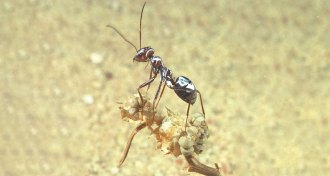 Animals
AnimalsSilver ant hairs reflect sunlight, keeping Sahara dweller cool
The shiny hairs of the Saharan silver ant simultaneously reflect sunlight and permit the release of body heat, keeping the insects just cool enough to scavenge in the extreme summer sun.
By Andrew Grant -
 Astronomy
AstronomyBig exoplanet may be surrounded by helium
Warm Neptune-sized exoplanet might have atmospheres filled with helium.
-
 Earth
EarthFast-spreading crack threatens giant Antarctic ice shelf
A fast-spreading crack threatens Larsen C, one of Antarctica’s biggest ice shelves, satellite data suggest.
-
 Planetary Science
Planetary ScienceEvidence mounts for active volcanoes on Venus
The Venus Express orbiter detected possible signs of active volcanism on the planet next door.
-
 Planetary Science
Planetary ScienceEvidence mounts for active volcanoes on Venus
The Venus Express orbiter detected possible signs of active volcanism on the planet next door.
-
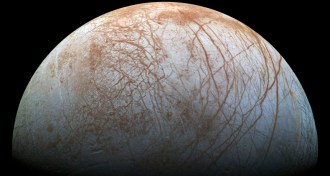 Planetary Science
Planetary ScienceNASA moves ahead with a mission to Europa
A NASA mission slated for the 2020s to Jupiter’s icy moon will try to figure out if the ocean there is habitable.
-
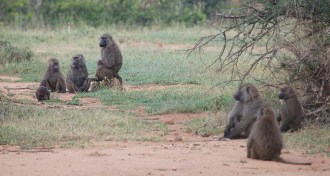 Animals
AnimalsWhen baboons travel, majority rules
GPS study suggests baboons use simple rules to resolve travel disputes without leaders.
By Bruce Bower -
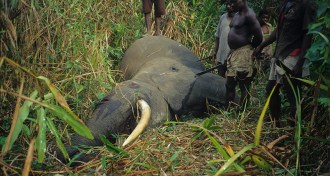 Genetics
GeneticsIvory DNA pinpoints poaching hot spots
Genetic analysis of ivory DNA reveals major poaching hot spots in Africa.
By Meghan Rosen -
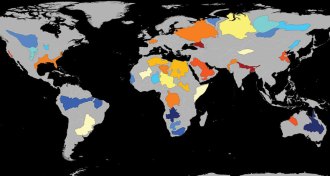 Agriculture
AgricultureMany of Earth’s groundwater basins run deficits
Twenty-one of Earth’s 37 largest groundwater basins are rapidly depleting, satellite data show.
-
 Anthropology
AnthropologyKennewick Man’s DNA links him to present-day Native Americans
Genetic analysis of Kennewick Man suggests that the ancient Pacific Northwest man was most closely related to modern Native Americans, not Polynesians.
By Bruce Bower -
 Health & Medicine
Health & MedicineCurtailing calories on a schedule yields health benefits
Eating an extreme low-calorie diet that mimics fasting just a few consecutive days a month may yield a bounty of health benefits, research suggests.
-
 Animals
AnimalsKangaroos are lefties
Scientists find evidence of handedness in marsupials that walk on two, but not four, legs.